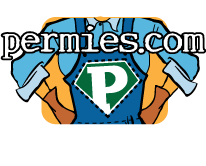
 10
10





 9
9




Community Building 2.0: ask me about drL, the rotational-mob-grazing format for human interactions.
 3
3




 4
4




 4
4




"Also, just as you want men to do to you, do the same way to them" (Luke 6:31)
 5
5




“Knowledge is knowing a tomato is a fruit: Wisdom is not putting it in a fruit salad. “ Brian Gerald O’Driscoll
 2
2









 2
2




Community Building 2.0: ask me about drL, the rotational-mob-grazing format for human interactions.
 3
3








 2
2




My books, movies, videos, podcasts, events ... the big collection of paul wheaton stuff!




Joshua Myrvaagnes wrote:Just wanted to put my plug for having more coverage of "paired programming" at the Lab. For the book, and also for the podcast.
It seems the devil's in the details, and a lot of organizations think they're doing paired programming but are really just setting up their chairs a little differently. Only when you stick to your guns and really trust the process does it bear the most significant fruit.
Thanks for doing the experiments!
My books, movies, videos, podcasts, events ... the big collection of paul wheaton stuff!
 2
2




Amy Arnett wrote:Wow! I haven't read a whole book straight through in probably three years. Couldn't put it down, or couldn't look away is maybe more accurate since it's a pdf.
My books, movies, videos, podcasts, events ... the big collection of paul wheaton stuff!
 4
4




Ash Jackson wrote:Your description of Symboo village (and the people in it) sounds mighty enticing. Utopian, even. It sounds very similar to the dream in my head of "a town with no cars that can feed itself."
Now I just wish I could go visit Symboo village more than just in my imagination. Live there.
(And maybe when I grow up I can be cool enough to be part of village B or C. (And maybe we'll get to see what Step 3 and Step 4 look like.))
My books, movies, videos, podcasts, events ... the big collection of paul wheaton stuff!




My books, movies, videos, podcasts, events ... the big collection of paul wheaton stuff!
 6
6




paul wheaton wrote:I think that this book will never be a big seller and is not worth doing a kickstarter for. Agreed?
 1
1




paul wheaton wrote:I think that this book will never be a big seller and is not worth doing a kickstarter for. Agreed?




Never attribute to malice that which is explained by ignorance or the inability to listen









paul wheaton wrote:
Joshua Myrvaagnes wrote:Just wanted to put my plug for having more coverage of "paired programming" at the Lab. For the book, and also for the podcast.
It seems the devil's in the details, and a lot of organizations think they're doing paired programming but are really just setting up their chairs a little differently. Only when you stick to your guns and really trust the process does it bear the most significant fruit.
Thanks for doing the experiments!
I can't remember - do I mention the pair programming thing in the book?
Community Building 2.0: ask me about drL, the rotational-mob-grazing format for human interactions.









paul wheaton wrote:I think that this book will never be a big seller and is not worth doing a kickstarter for. Agreed?
Community Building 2.0: ask me about drL, the rotational-mob-grazing format for human interactions.
 6
6




Edible Gardens and Yardscapes are IN! https://edibleyardscapes.blogspot.com/ Interested on the subject of #Vanlife? Have a look at all these great links to help get you started -->> http://bit.ly/vanlivin -->> Check out some DIY Survival Stuff Bargains Ive made to share here -->> https://bit.ly/4shtf Thanks! ツ
 2
2




My books, movies, videos, podcasts, events ... the big collection of paul wheaton stuff!








K Wagner wrote:Paul talks about a tool in this called scubbly
My books, movies, videos, podcasts, events ... the big collection of paul wheaton stuff!
 2
2




“In every walk with nature, one receives far more than he seeks” -John Muir
 1
1




Details on our home build as owner builders here
 2
2




 4
4




Sometimes a map of all the trails that don’t lead to your destination is as useful as finding the one that does.
 2
2




Joy to You
 2
2




“Every human activity is an opportunity to bear fruit and is a continual invitation to exercise the human freedom to create abundance...” ― Andreas Widmer
 3
3




Blog: 5 Acres & A Dream
Books: Kikobian Books | Permies Digital Market
 4
4




Rachel Lindsay wrote:
I totally agree that building good new things is what we need to do. I harp on this topic to my husband all the time, poor dear fellow! I wish to build everything somehow, but there is only one small introverted me here that sees these great big problems and has very limited ability to build anything. I have started in my own backyard, and am expanding to my parents' backyard (parents and in-laws also are more and more embracing organic and chemical free foods because of the things I tell them! Hurrah!) but this doesn't make me feel as happy as I wish it would.
I want to build more, and I want to learn how to prioritize what I build and maximize who I am and what I can do to make the most of my little life, and I want to learn how to be content with the little that I am able to do, compared to all the problems that I see. Paul seems to be able to dive in so deeply with his projects that he doesn't get distracted by the machinations of the Bad Guys anymore. I want to be in that place too!
* Follow your curiosity , Do what you Love *

|
Joel Salatin has signs on his property that say "Trespassers will be Impressed!" Impressive tiny ad:
Native Bee Guide - now FREE for a while
https://permies.com/wiki/140436/Native-Bee-Guide-FREE
|